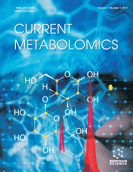Abstract
Metabolomics, the comprehensive study of small molecules within a biological sample, has emerged as a powerful tool in the field of systems biology. Concomitantly, the development of mass spectrometry-based metabolomic platforms, in particular high performance liquid chromatography and gas chromatography coupled methods, has allowed for rapid advancement in the fields of metabolite separation and identification. Modern mass spectrometry-based techniques rely on robust sampling and extraction methodology, and analytical instrumentation with high sensitivity over a wide mass range (dynamic range), which is unequaled in the metabolomics field. Mass spectrometry-based metabolomics may be performed in a global, untargeted manner, in which fragmentation spectra are compared against databases of known metabolite fragmentation patterns. Contrarily, strategies which utilize recognition of specific functional groups, as well as isotope labeling, enable a targeted approach in mass spectrometry based metabolomics. This review aims to outline the steps taken in a metabolomics experiment, as well as considerations which need to be taken into account in the development of an experimental strategy. In addition, recent literature which utilizes mass spectrometry based metabolomics will be presented, along with the methodology by which these studies elucidate biological functions and metabolic pathways. The availability of isotope coded standards and derivatization agents will also be addressed, along with the role these compounds play in the identification and quantification of metabolites.
Keywords: Biomarker, profiling, mass spectrometry, metabolomics.
 51
51








.jpeg)








